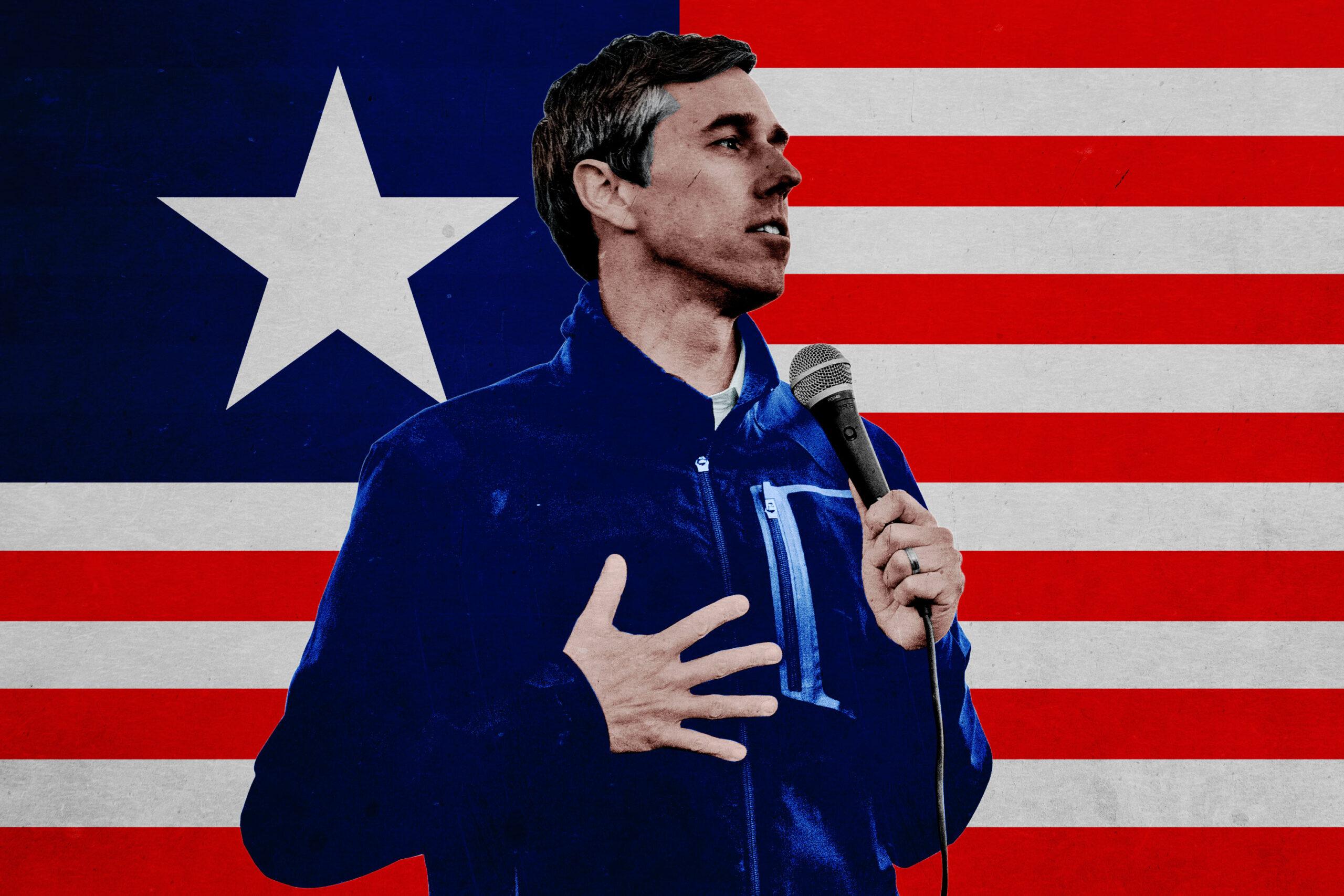What’s the Big Idea, Beto O’Rourke?
The former representative from Texas is passionate, handsome, and otherwise a mystery. He has yet to announce whether he is running for president in 2020, and it remains to be seen how he would stand out amid a crowded field of Democratic contenders.
Beto O’Rourke may run for president in 2020. He might even launch his campaign in the next few days. There’s a nagging urgency among O’Rourke’s supporters, and pundits in general, imploring him to declare his candidacy before the Democratic field crowds him out. The race is too far along; he’s already six weeks too late to matter. O’Rourke would be the 15th candidate to announce a bid for the Democratic nomination, though he’d hardly be the last. Joe Biden has agonized for several months about whether to run. Despite his reservations, some polls suggest he’d be the party’s front-runner if he were to enter the race. Still, Biden is a former vice president and senior Democratic figurehead. O’Rourke is a riskier prospect. For the past year, he’s been a favorite subject of longform journalism, and yet he’s still the most inscrutable figure in 2020 presidential politics. The former U.S. representative from El Paso, Texas, who nearly defeated Senator Ted Cruz in the midterm elections, is passionate, handsome, and otherwise a mystery.
For now, however, O’Rourke is a superstar. He’s a young, enthusiastic underdog who inevitably draws comparisons to John F. Kennedy, Bill Clinton, and Barack Obama. It’s a reductive assessment. In the 2008 election, Obama, then a first-term senator from Illinois, grounded his candidacy in opposition to the Iraq War, the dominant political concern—especially among liberal activists—for much of the 2000s. As a senator, Hillary Clinton voted to authorize the use of military force against Iraq in 2002, and Obama turned the 2008 Democratic primaries into a referendum on Clinton’s judgment. Obama churned out reams of rhetoric about “hope and change” too, but he crucially distinguished his idealism from Clinton’s cynicism. Eight years later, Vermont Senator Bernie Sanders drew a similar contrast with Clinton in his campaign rhetoric about Wall Street, workers’ rights, and universal healthcare. Sanders’s views sound nothing like O’Rourke’s, who seamlessly conflates liberal idealism and center-left pragmatism. If anything, O’Rourke suffers from ambiguity about his agenda and skepticism about his liberal bona fides. Massachusetts Senator Elizabeth Warren touts a plan for universal childcare. Last week she proposed breaking up Amazon, Google, and Facebook (and now Apple too). Elizabeth Warren has ideas. So, too, does Sanders, who currently raises more money in contributions than all the other Democratic campaigns combined. O’Rourke is also a formidable fundraiser, but he struggles to keep pace with the so-called “ideas primary.” He may well turn out to be a lightweight standing next to Sanders and Warren.
The presidential contest is just one forum for these ideas. In Congress, New York Representative Alexandria Ocasio-Cortez is leading a left-wing rebellion, rallying congressional Democrats around an unwieldy climate change agenda and exceeding the influence of House Speaker Nancy Pelosi among activists. She also tweets a lot. Ocasio-Cortez is the rare Democrat who rivals President Donald Trump’s ability to drive entire news cycles from one Extremely Online Twitter account. O’Rourke, too, relies on social media with millennial gusto, and his Instagram dispatches largely defined his 2018 Senate campaign. But O’Rourke and Ocasio-Cortez diverge when it comes to their larger purposes. Ocasio-Cortez uses social media to promote socialism through serialized argument. O’Rourke uses social media to enhance the mythology—and electability—of Beto O’Rourke.
The prevailing analysis tends to sort Democratic politicians by their partisan inclinations, pitting left-wing rebels versus pragmatic centrists. But the earliest months of the Democratic primary have done more to distinguish the “ideas candidates,” such as Sanders and Warren, from personality-first candidates like New Jersey Senator Cory Booker and California Senator Kamala Harris. O’Rourke’s stardom is unambiguous, and he ran an incredible campaign in his narrow defeat to Cruz. Four months after O’Rourke’s loss, however, it’s difficult to discern what his core concerns, ideas, and priorities would be in the context of a national election. It’s equally tough to discern whether left-wing ideas will determine who wins the nomination, or whether Democrats will simply rally around the most charismatic candidate who manages to survive the South Carolina primary. There’s still plenty of time to decide.

